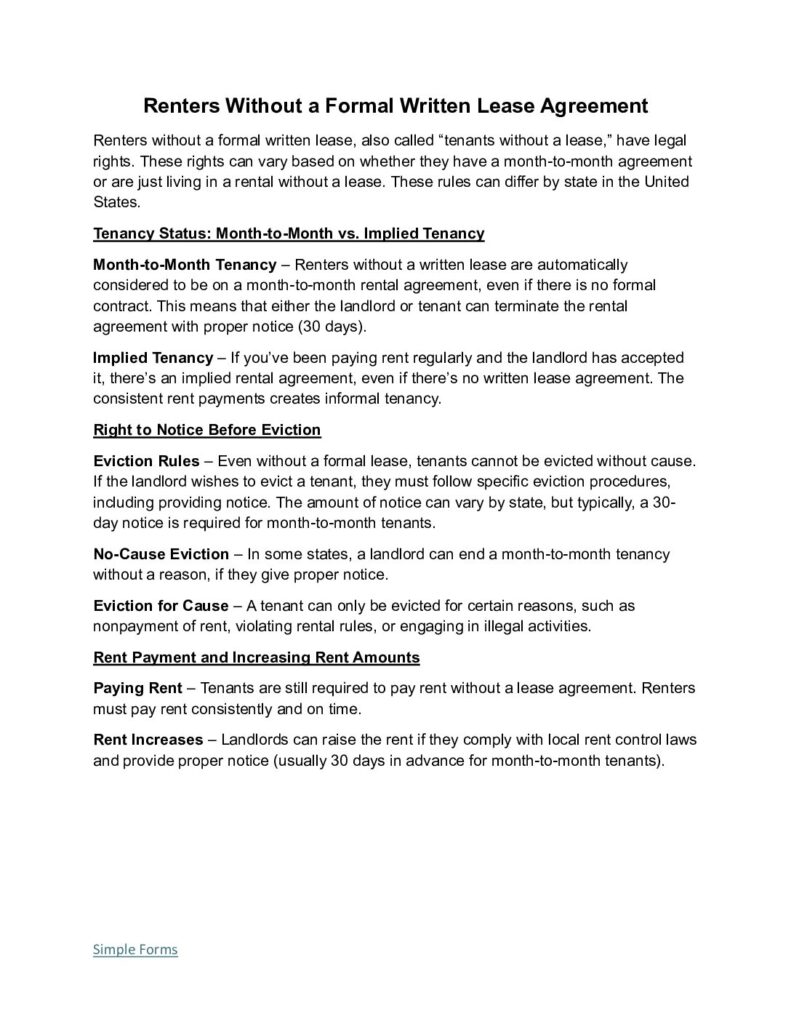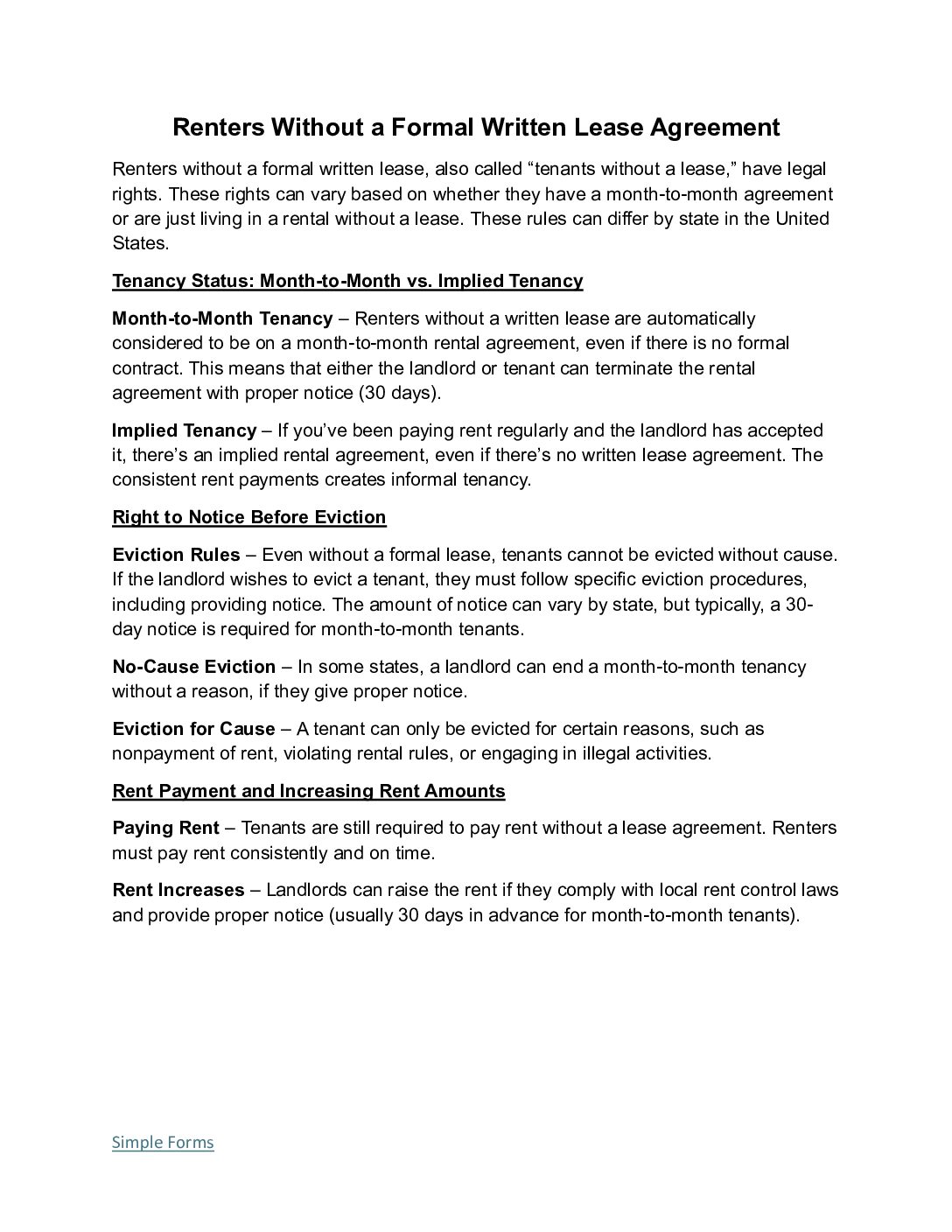What are tenants rights without a lease?
Renters without a formal written lease, also called “tenants without a lease,” have legal rights. These rights can vary based on whether they have a month-to-month agreement or are just living in a rental without a lease.
The following rules for tenants can differ by state in the United States:
Tenancy Status: Month-to-Month vs. Implied Tenancy
Summary (law.cornell.edu↗):
- Month-to-Month Tenancy – Renters without a written lease are automatically considered to be on a month-to-month rental agreement, even if there is no formal contract. This means that either the landlord or tenant can terminate the rental agreement with proper notice (30 days).
- Implied Tenancy – If you’ve been paying rent regularly and the landlord has accepted it, there’s an implied rental agreement, even if there’s no written lease agreement. The consistent rent payments creates informal tenancy.
Right to Notice Before Eviction
Summary (law.cornell.edu↗):
- Eviction Rules – Even without a formal lease, tenants cannot be evicted without cause. If the landlord wishes to evict a tenant, they must follow specific eviction procedures, including providing notice. The amount of notice can vary by state, but typically, a 30-day notice is required for month-to-month tenants.
- No-Cause Eviction – In some states, a landlord can end a month-to-month tenancy without a reason, if they give proper notice.
- Eviction for Cause – A tenant can only be evicted for certain reasons, such as nonpayment of rent, violating rental rules, or engaging in illegal activities.
Rent Payment and Increasing Rent Amounts
Summary (justia.com↗):
- Paying Rent – Tenants are still required to pay rent without a lease agreement. Renters must pay rent consistently and on time.
- Rent Increases – Landlords can raise the rent if they comply with local rent control laws and provide proper notice (usually 30 days in advance for month-to-month tenants).
Sample Tenants Rights Without a Lease
https://simpleforms.com/wp-content/uploads/2024/12/Renters-Without-a-Written-Lease-Agreement-1.pdf

